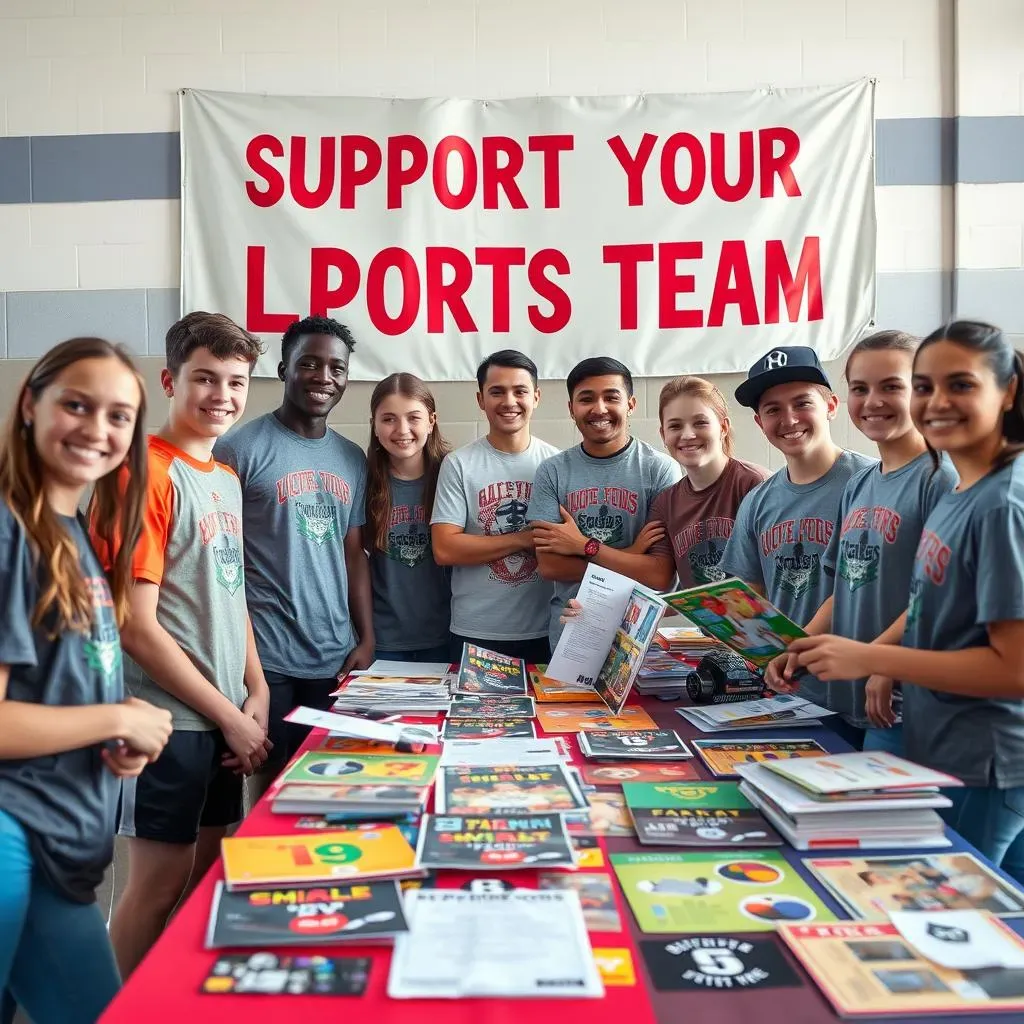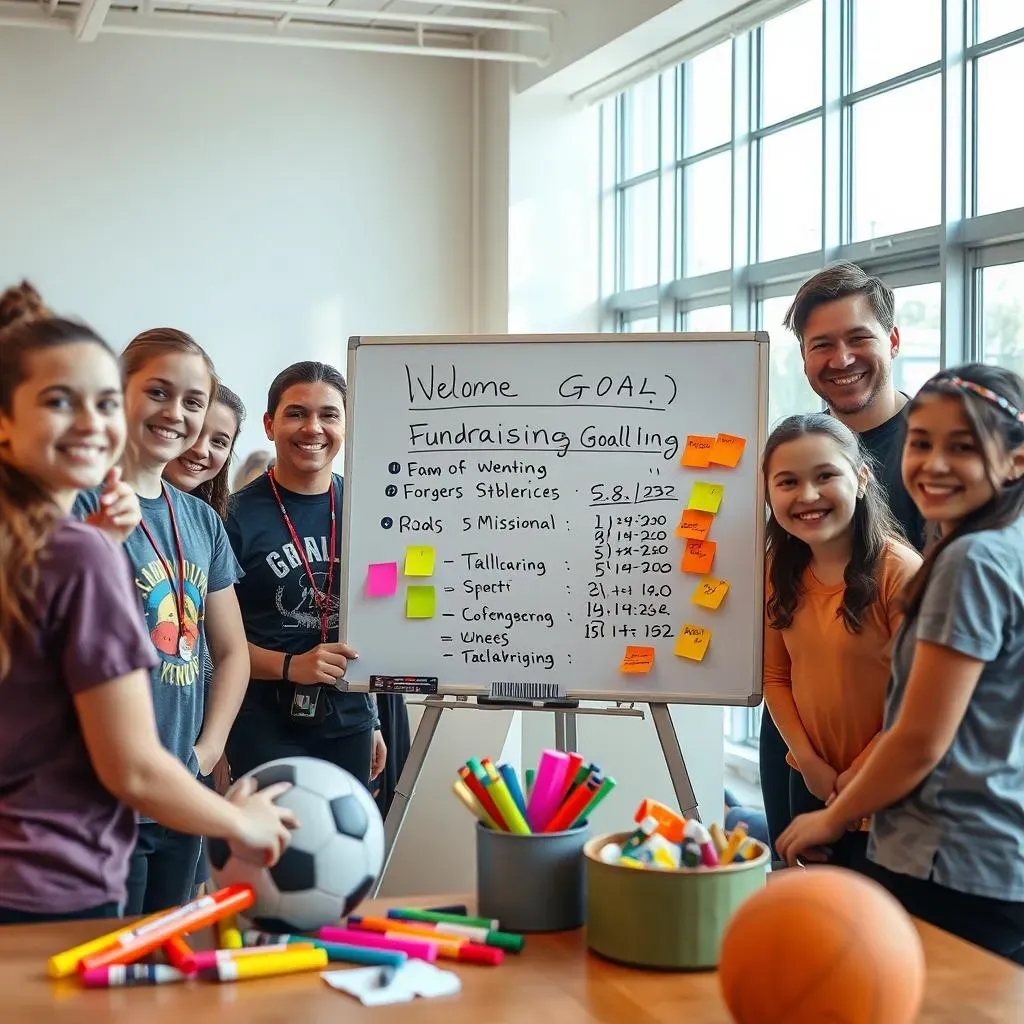Table of Contents
So, your sports team needs some extra cash? Whether it's for new equipment, travel expenses, or that coveted championship trophy, fundraising is often a necessity. This article is your complete guide on how to organize a sports team fundraiser that's not only successful but also fun and engaging for everyone involved. We'll walk you through every step, from the initial planning stages to the final post-event analysis. First, we'll tackle the crucial aspects of planning: defining your fundraising goals, selecting the perfect event type to suit your team's needs and resources, and assembling a dedicated team to share the workload. Then, we'll dive into the practicalities of organizing your fundraiser: securing a venue, managing logistics, and implementing effective fundraising strategies to maximize your donations. Finally, we'll cover essential promotional techniques to spread the word and attract maximum participation, along with tips for a smooth execution and analyzing your results afterward. Learning how to organize a sports team fundraiser is more than just about raising money; it's about building community spirit, fostering teamwork, and ensuring your team has the resources it needs to excel. Let's get started and turn your fundraising dreams into reality!
Planning Your Sports Team Fundraiser: Setting Goals and Choosing the Right Event

Planning Your Sports Team Fundraiser: Setting Goals and Choosing the Right Event
Define Your Fundraising Goals
Before diving into the exciting world of fundraising events, you need a clear roadmap. What exactly are you raising money for? New uniforms? Travel to a tournament? Essential equipment upgrades? Be specific! Setting a concrete financial goal—a number you're aiming to reach—is essential. Don't just say "a lot of money"—quantify your needs. If you're aiming for new uniforms, for example, research the cost of each uniform and multiply that by the number of players. This gives you a tangible target, which helps you measure your progress and motivates your team and supporters. Remember to factor in any potential extra costs, like printing fees or shipping.
Once you have your financial goal, consider breaking it down into smaller, more manageable milestones. This creates a sense of accomplishment as you reach each step. It also helps you stay organized and track your progress. Think of it like training for a marathon; you don't run the whole distance at once, right? You break it down into smaller runs, celebrating each milestone along the way. This approach is incredibly effective for maintaining momentum and motivation throughout your entire fundraising journey. Consider creating a visual progress tracker—a thermometer, perhaps—to visually represent your progress towards the ultimate fundraising goal.
Fundraising Goal | Milestones | Strategies |
|---|---|---|
$5,000 for new uniforms | $1,000, $2,000, $3,000, $4,000, $5,000 | Bake sale, car wash, online donation page, sponsorship drive |
Choosing the Right Fundraiser
With your financial goals clearly defined, it's time to brainstorm fundraising event ideas. Consider your team's strengths, your community's interests, and the time and resources available. A bake sale is simple, but might not raise as much as a larger event like a tournament. A car wash is practical but weather-dependent. Think about your team's size and the level of commitment your members can offer. Do you have the manpower to organize a complex tournament, or would a simpler, smaller-scale event be more manageable?
The best fundraising event is one that aligns with your team's capabilities and the community's willingness to participate. Think about events that resonate with your community. If you're in a town with a strong sporting culture, a sports-themed event might attract more people than a craft fair. If your team is known for its strong community ties, consider reaching out to local businesses for sponsorships. Involving the community not only boosts fundraising potential but also creates a sense of shared purpose and enhances team spirit. For more ideas, check out our guide on youth sports fundraising for additional inspiration.
- Simple Events: Bake sales, car washes, yard sales
- Moderate Events: Raffles, skill challenges, themed nights
- Large-Scale Events: Tournaments, auctions, 5k runs
How to Organize a Successful Sports Team Fundraiser: Logistics and Fundraising Strategies
Securing a Venue and Gathering Supplies
Okay, you've got your fundraising goal and a killer event idea. Now for the nitty-gritty: logistics! First up: the venue. Where will your event take place? A school gym? A local park? A community center? Start scouting locations early. Consider factors like size, accessibility, parking, and any potential rental fees. Don't forget to check the availability of the venue on your chosen date. Once you've secured your venue, it's time to gather the necessary supplies. This will depend on your chosen event; a bake sale requires different supplies than a car wash. Create a comprehensive checklist to avoid last-minute scrambles. Remember those little details that can make or break an event: tables, chairs, trash cans, decorations—the list goes on! A well-organized supply list will help you stay on track and prevent unnecessary stress.
Next, you'll want to think about your team and how they can help. Delegate tasks to different team members to share the workload. Think of it as a team effort, just like on the field! Assign roles based on people's skills and preferences. Some might be great at organizing, while others excel at communicating with sponsors or volunteers. Efficient task delegation is a key to a stress-free fundraising event. Don't forget to schedule regular team meetings to keep everyone informed and coordinate efforts. Clear communication prevents mishaps and ensures a smooth operation.
Task | Team Member | Deadline |
|---|---|---|
Secure venue | Sarah | November 29th |
Gather supplies | John & Mike | December 6th |
Marketing & Promotion | Maria | Ongoing |
Fundraising Strategies: Diversifying Your Income Streams
Now, let's talk money! Relying on a single fundraising method is risky. Diversify your income streams to increase your chances of hitting your target. Consider a combination of approaches. For example, you could combine a bake sale with an online donation page to reach a wider audience. You could also set up a sponsorship program, approaching local businesses to ask for financial support in exchange for advertising at your event or on your team's website. Sponsorships can significantly boost your fundraising efforts.
Don't underestimate the power of online fundraising tools. Websites and apps make it easy to accept online donations, sell raffle tickets, and even manage volunteer sign-ups. Many platforms offer free or low-cost options, making them accessible to even teams with limited budgets. A well-designed online presence can significantly broaden your reach, attracting supporters from beyond your immediate community. For more ideas on boosting your online fundraising, check out our guide on effective online fundraising for youth sports.
- Online Donation Platform
- Sponsorship Drive
- Raffle/Lottery
- Merchandise Sales
Maximize Your Sports Team Fundraiser: Promotion, Execution, and PostEvent Analysis

Maximize Your Sports Team Fundraiser: Promotion, Execution, and PostEvent Analysis
Promoting Your Fundraiser: Getting the Word Out
All the planning in the world won't matter if nobody shows up! Promotion is key to a successful fundraiser. Start early—at least a month before your event—to build anticipation. Utilize a multi-pronged approach, combining online and offline strategies. Create eye-catching posters and flyers to distribute around your community. Leverage social media platforms like Facebook, Instagram, and Twitter to reach a wider audience. Share photos, videos, and updates about your fundraising efforts to keep people engaged. Don't forget to use relevant hashtags to increase visibility. Consider creating a dedicated event page on your team's website or using a free online event platform to promote your event and accept registrations or donations.
Involve your team members in the promotional efforts. They're your best ambassadors! Encourage them to spread the word among their friends, family, and social networks. Word-of-mouth marketing is incredibly powerful. Consider offering incentives for team members who bring in the most donations or sponsors. This fosters a sense of friendly competition and boosts overall participation. Remember to thank your supporters and sponsors publicly—a little appreciation goes a long way! For more tips on effective promotional strategies, check out our detailed guide on youth sports fundraising ideas.
Promotion Channel | Action | Deadline |
|---|---|---|
Social Media | Post regularly, use hashtags | Ongoing |
Flyers/Posters | Design and distribute | 2 weeks before event |
Email Marketing | Send email blasts | 1 week before event |
